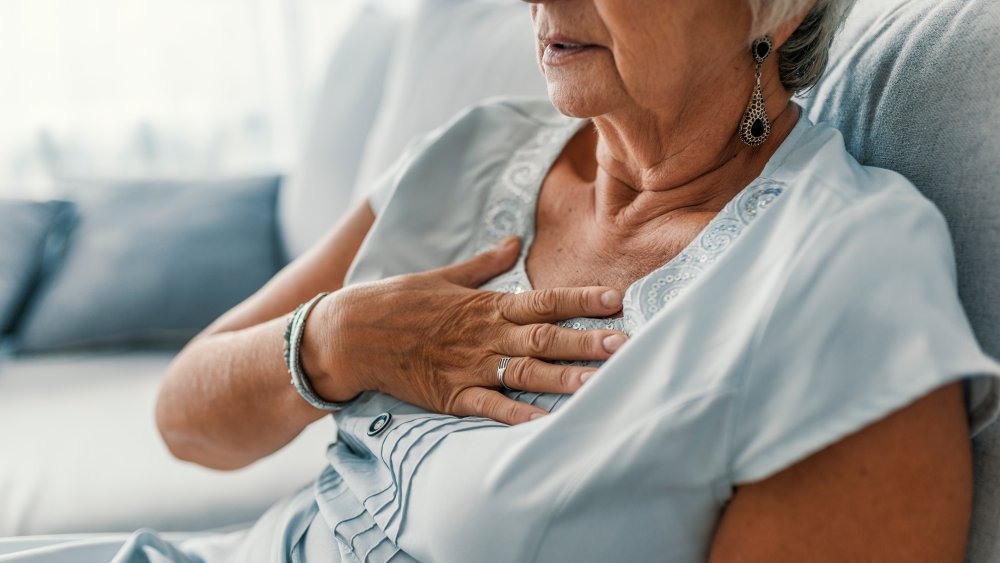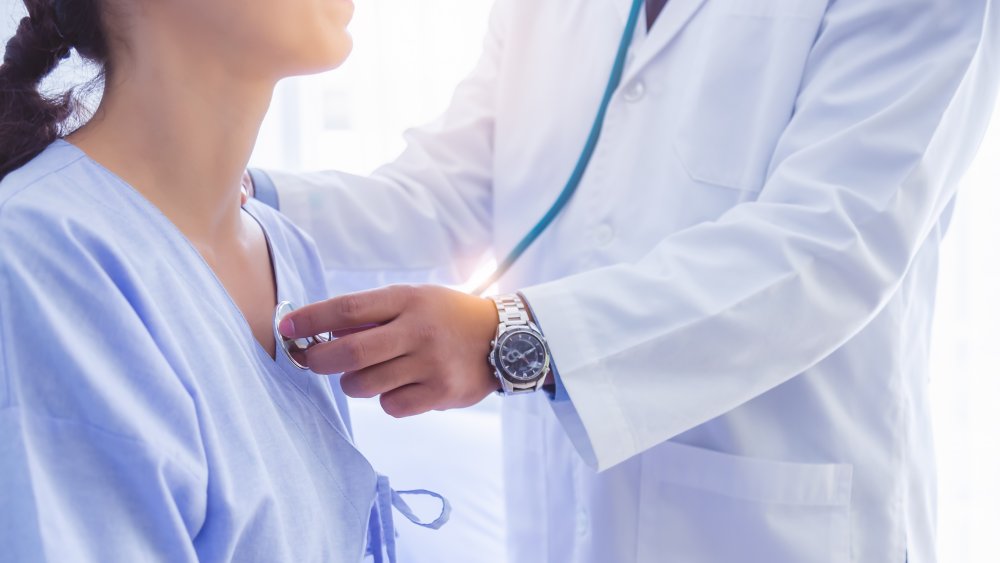Why Women Are More Likely To Die In The Hospital After A Heart Attack
Dying because of a heart attack is much less common than it used to be in the 1970s and 1980s — in fact, Harvard Medical School reported that more than 90 percent of patients now survive a myocardial infarction, the medical name for a heart attack. That's because the tools doctors have to treat the blood clots that cause heart attacks have become much more sophisticated and effective over the years. But according to a recent report, of the people who do die from this condition, a disproportionate number are women. In fact, female patients are 11 percent more likely to die in the hospital after suffering a heart attack because they didn't get appropriate treatment, a new study published in the medical journal Circulation: Heart Failure reported.
In this five-year analysis of more than 90,000 patients between the ages of 18 to 55 who were admitted to the hospital for the heart attack symptom cardiogenic shock — in which the heart suddenly stops pumping blood to the body — women received fewer diagnostic and treatment procedures than men (via CNN). "It is very concerning that the young, productive women of our society face these health care disparities," said study co-author Dr. Saraschandra Vallabhajosyula, a clinical fellow in interventional cardiology at Emory University School of Medicine, in a statement. "Our emphasis should be on providing high-quality and equitable care for every patient independent of their sex."
Doctors do fewer procedures on women who have heart attacks, study finds
Vallabhajosyula's study found that across the board, doctors perform fewer procedures on female heart attack patients than on men. Coronary angiography, a procedure that detects heart blockages, was performed on 78.3 percent of women, compared to 81.4 percent of men. Similarly, only 59 percent of women received stents, or tubes, to open up heart blockages, while 64 percent of men were treated with this life-saving procedure. One of the most aggressive treatments is using a mechanical pump to assist the heart's function — a procedure offered to nearly 60 percent of male patients, but only 50 percent of females.
Knowing that they're less likely to get thorough treatment at the hospital, it's extremely important that women advocate for themselves when they get medical care, according to Dr. Nieca Goldberg, medical director of New York University Women's Heart Program in New York City. "All women need to know the signs of a heart attack–chest pressure, upper back or upper abdominal pressure, shortness of breath, weakness or fatigue, fainting or collapse. If they experience these symptoms, they need to call 911 without delay," she told HealthDay. "If you don't understand a doctor's recommendations, ask them to explain them in a way you can understand, so you can be an active partner in your health care decisions."


